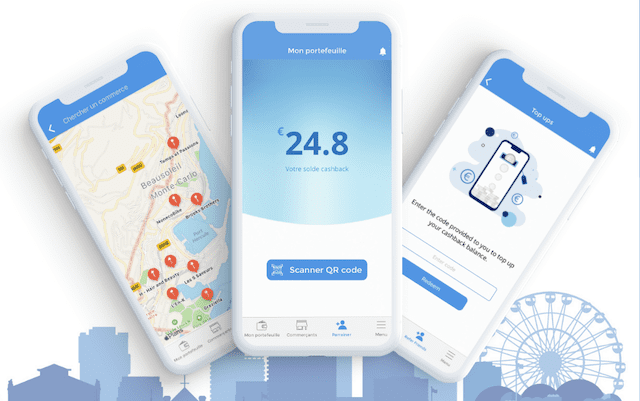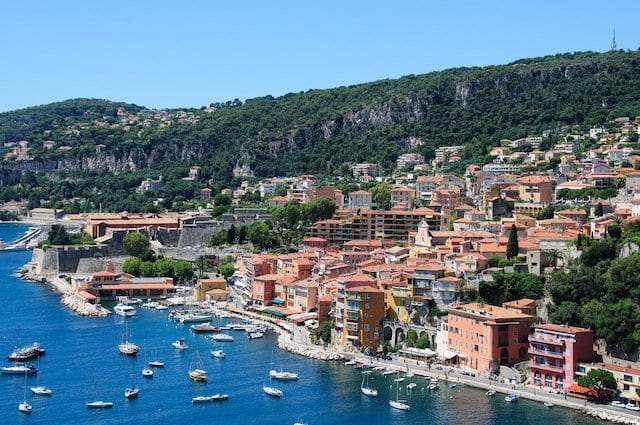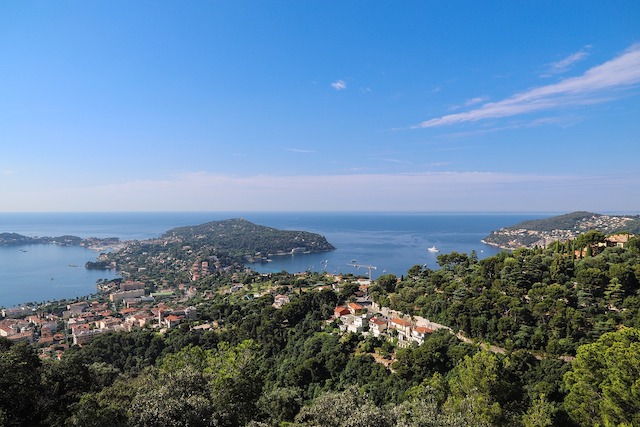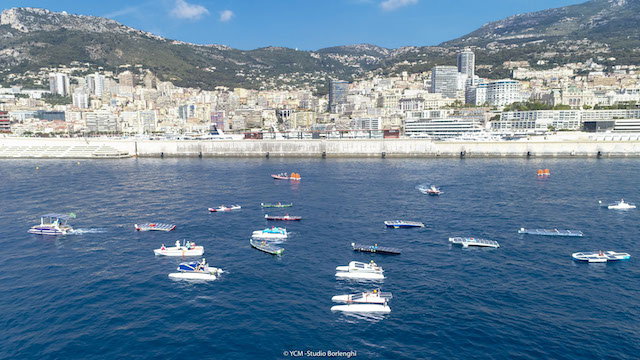Antoine Bahri is the brains behind Carlo app, Monaco’s first mobile-based loyalty programme rewarding consumers for buying local – an initiative that couldn’t have come at a better time.
Antoine spoke to Monaco Life about how he and his team were forced to adapt the retail-focussed start-up amid a lockdown, helping local retailers get online, and establishing Monaco’s first digital currency.

You trained as a pharmacist. When did the world of retail draw you in?
I grew up in the Principality and, after studying abroad, I worked as a manager of my family’s watch store in Monaco for a few years, which gave me the experience and understanding of the needs of retailers. At that time, I realised there was a significant change in consumer behaviour. People were not going to bricks and mortar stores as much as they used to because of big players in e-commerce and large commercial centres opening outside of Monaco, such as Polygone and Cap 3000. We had a meeting with local retailers and I realised we needed to find a solution.
So, I went to Barcelona to do an MBA and I co-founded my first start-up – a payment app for restaurants. The app allowed customers to see a bill in real time, so when they were ready to leave the restaurant they could pay, tip the waiter, even share the bill, without waiting for it to come to the table. It was useful for customers and it helped restaurants increase their turnover of tables by improving the payment process.
It was very successful, but once I completed my MBA, my partners and I agreed to take what we had learned through the development of this app and move on.
By then, I had realised the most important aspect for restaurants was the loyalty programme, and that it was something I could apply to the whole retail sector. So, I came back to Monaco and decided to start another app from scratch.
How did you get the backing you needed in Monaco?
I won the JCEM’s Concours de Création d’Entreprise in 2018, and was awarded €40,000 in financing. It also opened a lot of doors in terms of contacts. We launched the Carlo app in the summer of 2019.
So how does it work?
A customer visits a local retailer and says “I’m a Carlo user”, they scan a QR code at the merchant and they automatically receive 5% in cashback that goes into a virtual wallet. The consumer can accumulate that cashback and spend it in all the participating retail stores. If you think about it, it is like a local currency.
Merchants regularly offer a 10% discount to attract customers or to make them loyal, but this is money that stays in the pocket of the consumer and might never come back to the merchant. So what we do is we take that 10% from the merchant and we re-distribute it. We give 5% to the customer in cashback, we give 2% to the referrer of the customer so we can rely on people to talk about the app, and the 2% remaining is used to finance the company.
But there is still no guarantee the retailer will get that 10% discount back. Is this a challenge for you?
Of course, some retailers tell me they don’t want their 10% to be spent in another store. But today, merchants generally understand that there is a need to build a community among themselves, because they have to play on another field other than the one that e-commerce is playing. E-commerce has so many tools to attract loyal customers, and many merchants are realising – especially after the Covid crisis – that they also need to use tools and novel ways in order to attract customers and even out the playing field.
How did you adapt your business model when the lockdown was imposed in Monaco?
Once the lockdown was applied, most merchants were forced to close their doors, apart from a few. So, we tried to find solutions. The first project we launched was a listing of all the restaurants and businesses that were still open for delivery. Then, we saw that there were many initiatives launched in other cities in Europe that allowed businesses to sell gift cards online, to be used once a business reopens. This way consumers can help local businesses by giving them a revenue stream when they would otherwise have none.
This initiative has received some backing from the Monaco government, can you tell us about that?
The government is backing it by applying an additional incentive of 10%. So, every time a user buys a gift card for €100, for example, they would get a gift card of €110 thanks to the additional support from the government. This support only applies until the end of May, although we are negotiating for this to be extended.
What is your business plan for the future of the Carlo app?
Our goal since the beginning has been to make Carlo, in addition to a loyalty programme, the first mobile payment app for Monaco.
We have already signed a partnership with a French payment processor, so this will allow for the implementation of a payment system within the app and hopefully people will soon be able to use the app to pay at all participating merchants. It is similar to WeChat in China, as it uses a QR code. It is only a matter of time before people no longer use cash or credit cards at retail stores, but use their phones or similar devices to pay. There is no doubt that the future will be cashless.
We are also planning to develop Carlo Market, which is currently selling the gift cards. We will evolve this into a local market place, helping merchants who have now realised the importance of having a presence online. We will allow them to have all their products listed on Carlo Market and purchased online, further building this local marketplace for Monaco.



